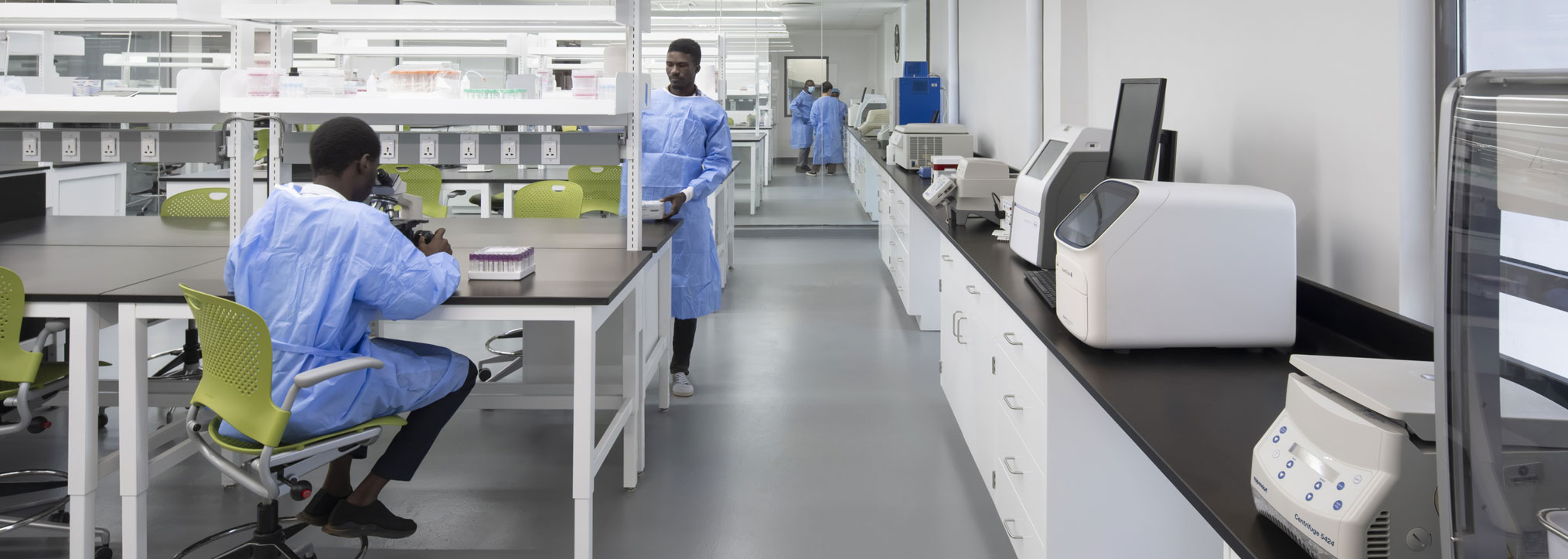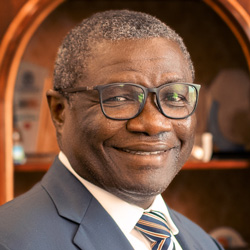Sentinel discusses their 100&Change Finalist proposal that equips local public health leaders with tools and infrastructure to contain disease outbreaks.
A dangerous outbreak of mpox has been sweeping through Sierra Leone since January 2025. As of July 31, the country had recorded roughly half of all the confirmed cases in Africa, with estimates suggesting more than 36,000 people may already be infected. At the outbreak’s peak, cases were doubling every two weeks.
The culprit is a fast-moving new variant of mpox—called G.1—that likely emerged in late November 2024. It circulated silently at first, but it quickly took hold and began sustained human-to-human transmission. No one is spared from this brutal virus, which belongs to the same family as smallpox and can result in severe rashes, hospitalization, necrotizing lesions—and even death.
This is how outbreaks become epidemics and, if left unchecked, pandemics. It is a stark reminder that infectious diseases are one of the greatest threats to humanity. They have caused more illness, death, and economic loss than any other crisis in history. They hit the most vulnerable communities the hardest. And they expose and exploit the deepest cracks in our societies.
It is a stark reminder that infectious diseases are one of the greatest threats to humanity... But they are also a solvable existential threat.
But they are also a solvable existential threat. And we are seeing that right now in Sierra Leone, where frontline healthcare workers, public health officials, and scientists have mounted a rapid response that is helping to contain the outbreak’s spread. And it is succeeding—case numbers have already slowed more than 10-fold thanks to a combination of increased testing, community outreach, and vaccination.
Addressing Outbreaks Collaboratively
The army of outbreak fighters includes dedicated individuals like Dr. John Demby Sandi, who leads the mpox diagnostic and sequencing at the Viral Hemorrhagic Fever Laboratory at Kenema Government Hospital (KGH). Within days of the outbreak’s escalation in January, Dr. Sandi and his team started working hand-in-hand with local public health officials and Sierra Leone’s National Public Health Agency to rapidly expand testing, sequence the virus, and analyze how it is changing—and they started sharing the data in real-time.
Dr. Sandi is part of Sentinel, a pandemic prevention system that we—Dr. Christian Happi and Dr. Pardis Sabeti—launched in 2020. We have worked together through some of the deadliest outbreaks of the past two decades, and Sentinel is the product of that experience: a system forged through collaboration, trust, and the belief that solutions must be co-created with the communities they are meant to serve.
Sentinel was designed for the world we live in now: interconnected, unpredictable, and rapidly changing. It equips local leaders with the tools and infrastructure to detect outbreaks early, respond fast, and stop the spread before it spirals.
Those tools not only include low-cost, ultra-sensitive diagnostic tests and rapid sequencing methods, but also real-time data platforms that bring together genomic, diagnostic, clinical, and epidemiological data to map outbreaks as they unfold. All these tools are highly scalable and flexible and have already been rolled out at our current Sentinel sites. In fact, our real-time platform, Lookout, was deployed in Sierra Leone, providing health officials with a live, evolving map of the mpox outbreak. We are ready to deploy these tools to more communities.
We are using AI to turbo-charge diagnostic test design as well as the identification of new viruses.
And soon, they will be even more powerful and efficient. We are using AI to turbo-charge diagnostic test design as well as the identification of new viruses. For example, identifying new viruses in samples recently took one of the top labs in the world 30 days using over 500 graphic processing units. Using a new AI architecture that we designed, we can now do it in 10 minutes on a laptop.
Developing Local Frontline Response
But Sentinel is about more than just democratizing technology: it is about people. Sentinel is built on equity and scientific sovereignty. Since our launch, we have trained more than 3,000 frontline responders in 53 of the 54 African countries. And together, we have sequenced tens of thousands of viral genomes, co-created new diagnostic tests, pressure-tested data platforms, responded to numerous outbreaks, and saved countless lives.
Dr. Sandi is one of those frontline leaders. We first met him in 2015, amidst the Ebola outbreak when he began working as a lab technician at KGH just out of college. Dr. Sandi spent two summers training with us in foundational genomics through advanced sequencing, and he went on to earn his PhD in molecular biology. He is the embodiment of the idea that when local teams lead, outbreaks are contained, and the world is safer.






